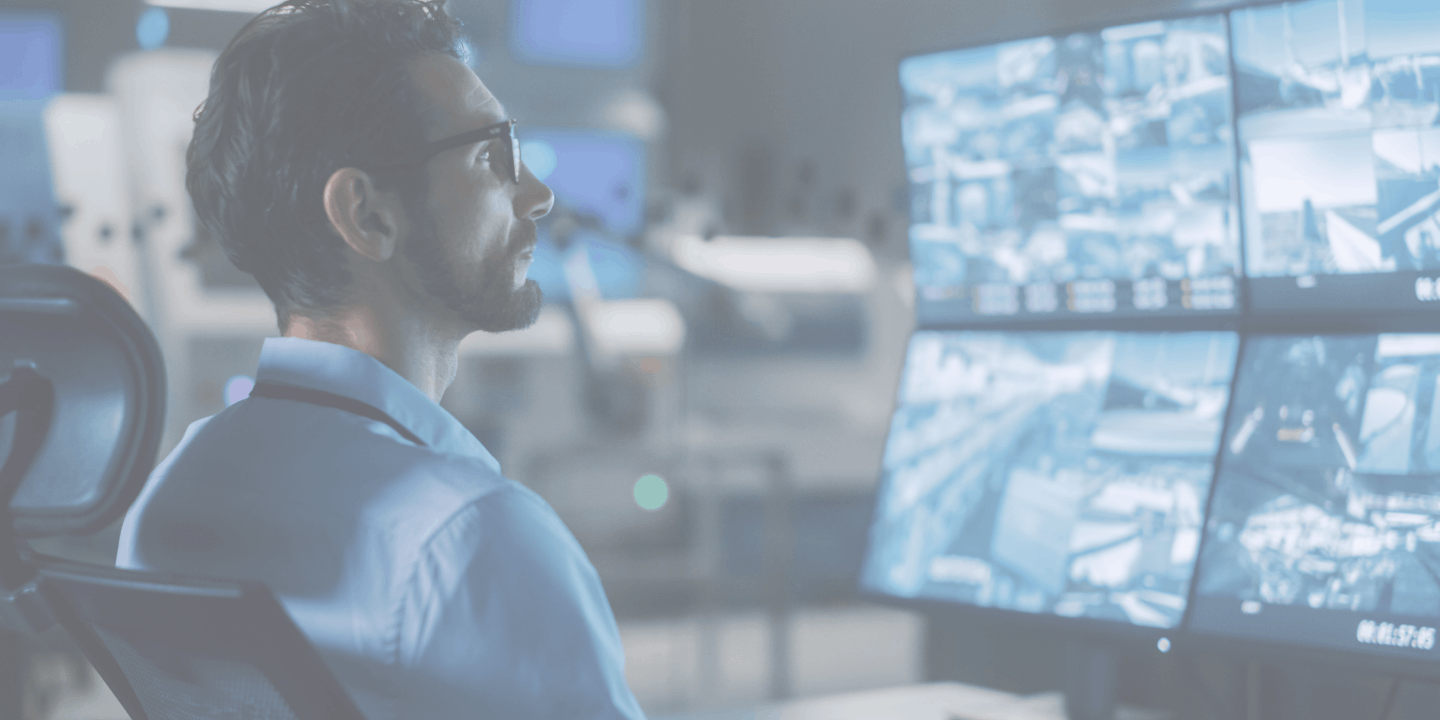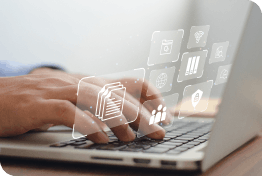
- Digital transformation
Integrated security solutions on the rise for security professionals
At the second session of the evalink Online Conference, we covered vital questions around the trend towards integrated security solutions in the security industry: What does "integrated security solution" mean? What role do integrated solutions play in the security industry? How can security professionals break down the silos of isolated systems to provide integral protection concepts by networking systems?
As an expert for cloud-based video management systems at Eagle Eye Networks DACH, Malte Hollung joined the conference with Gian-Paolo Monti, Head of Security Services at Swiss Denner AG. They enriched the panel led by Peter Monte and Lukas Kaiser, CEO and CPO of Sitasys, and moderated by Wolfgang Wüst, an expert in strategic security consulting.
What do security professionals expect from modern security systems?
For security solutions providers, bringing together analog devices and more modern IP devices that customers have gradually acquired over the years is a challenge. After all, security managers like Gian-Paolo Monti face the challenge of using different systems and solutions with which various events must be monitored.
Since the time factor plays a decisive role, especially in the security industry, systems are needed that reliably provide relevant information. Using Denner as an example, Gian-Paolo Monti explained that a lot of information has to be available centrally in real-time to forward alarms quickly and bundled to precisely those who need it in an emergency such as a shop robbery. Because a security team is often made up of many key people with different security levels, it is also essential that such a system is user-friendly and as simple as possible so that everyone who has to operate it understands what needs to be done.
Alarm management dashboards have improved over the years, allowing security officers to view the status of all monitored objects at any time, together with all the relevant information. However, because many companies like Denner operate in a decentralized organizational structure across various locations and dependencies, implementing efficient alarm management remains challenging.
"Implementing a uniform solution in one's system alone, let alone networking all the sites together, e.g., cloud-based, is the big challenge," says Gian-Paolo Monti. Many companies want a solution from a single source to grasp the complexity of all systems in an organization, centralize systems within the company, and ultimately network them with each other. For companies looking for a solution close to this target picture, it is first necessary to keep track of all the possibilities and ask themselves what is feasible.
The COVID-19 pandemic has shown that digitalization is excellent support for the security industry in dealing with these challenges and mastering them successfully.
What do customers expect from modern security systems?
But what does digitalization mean for customers - those looking for security solutions? Their biggest challenge is the market size for security solutions: It is vast, and many service providers offer similar solutions. Therefore, it is sometimes difficult for customers to determine which provider and resolution best meet their needs. On the other hand, the offer of complete, integrated security solutions is limited. While decisions about security systems always depend on the customer's needs, the essential criteria in the selection process remain flexibility and scalability. In addition, many customers want their security system to be state of the art, with the highest security safeguards.
What solution could be more evident than the cloud?
For Malte Hollung, who can draw on years of industry expertise in the areas of security installations and sales, one topic has always been particularly important: Networking. "All companies are switching to the cloud these days; everything is becoming much more agile; you must be able to work from anywhere," adds Malte Hollung.
To enable security managers to meet the expectations, i.e., to have their eyes and ears everywhere and know about the security situation on-site at all times - even across locations - they must have access to the appropriate technical resources. As well as the innovative alarm management platform evalink, Eagle Eye Networks is a perfect and open platform for this. All video cameras can be installed in the system within a vendor-agnostic platform. These can be securely and reliably brought into the cloud, where customers can easily and innovatively access the video images they need.
But even though Eagle Eye Networks is the number one in cloud video surveillance worldwide, at the end of the day, this represents only one piece of the puzzle for many. The future will see security solutions from highly specialized providers brought together intelligently to offer the best possible customer benefit. More and more companies are already taking care of integrated security solutions, although the percentage is still comparatively small and, therefore, expandable.
AI - A tool to generate a holistic view?
We all agreed that the security industry is still in its infancy regarding Artificial Intelligence (AI). In addition, it still comes with some skepticism on the part of the users. However, the participants agreed that AI is becoming increasingly important and will create added value for the security industry in the future. Particularly in the self-check-out in supermarkets, where AI is used to detect customer mischarges AI-supported processes have already been implemented. In addition, AI is increasingly being used in number plate recognition for parking space management.
According to the experts, the areas of application in which AI can benefit the security industry include support for occupational safety. AI also can help alarm system operators concentrate on their core business. And in retail, AI can also be used preventively in behavior-based analysis to recognize human actions and thus prevent shoplifting.
The technology in video surveillance is already there today. Essential to the development, he said, is to incorporate domain knowledge into the implementation. "We have the possibility, for example, with facial recognition, with eye-tracking, to recognize when a person is looking into the camera or walking in a certain direction. But what is still missing is precisely this knowledge that if someone turns away from the product and looks into the camera, this can indicate possible theft. That's where the cooperation between the people who deal with analytics and those who have the domain knowledge is essential," explains Lukas Kaiser.
AI interacting with humans - a good compromise
"I think the machine can do many things better than humans. Humans are a strength but also a weakness," says Gian-Paolo Monti. If security is people-independent at critical moments, he said, it is and, therefore, not susceptible to human error. He adds that AI's assistance in security systems can increase efficiency and allow working more cost-effectively.
"Humans will always play a very large role, and technology will not replace them. Technology will only support them somewhat," says Malte Hollung.
Added value from integrated security solutions
Integrated security includes functionalities and information from third-party systems and bringing together these, for example, in alarm processing. These can be connected either manually or automatically.
In practice, it supports the following:
- Integration of occupational health and safety systems for lone working
- Interconnection of an access control system with an alarm system
- Calling in a security service via a connected guard control system
- We are connecting video management: by integrating thermal cameras for image analysis and prevention.
On the evalink marketplace, which is constantly expanding, interested parties can get an overview and inspiration of the systems that Sitasys is already working with. These can easily be connected to the alarm management platform evalink.
In conclusion, innovation will increasingly be achieved via platforms and systems networks. The concept of the platform is indispensable in the entry of digitalization into our lives - the expert panel is unanimous in its opinion that in the future, security managers will not be able to avoid handling security via a higher-level platform and intelligently networking sensors with each other. "Individual systems are good in themselves, but networked systems are just that little extra in my view," concludes Peter Monte.



